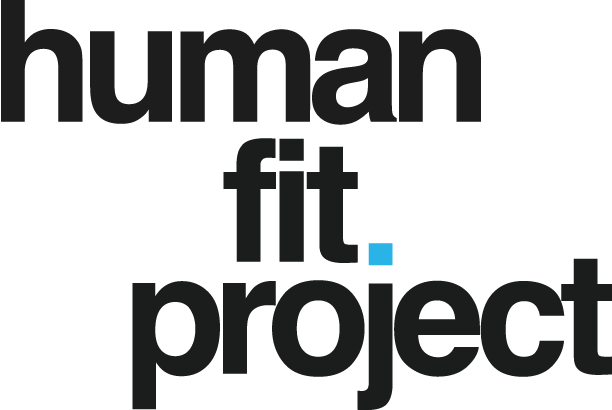Anyone can get caught in a negativity spiral from time to time. I know I have, several times. The good news is: You can get out. And the first step is knowing you’re in one. The following piece includes 10 things I learned from being in a deep, dark, negativity spiral, and finding my way out. For more on that very personal story, read this piece about my daily attitude readjustment project and how a positive mind got me out of a hole. And if you’re in one yourself now, I suggest you continue on.
1. Write every day.
Consistently putting your thoughts on paper can be therapeutic and calming. Writing allows you to process your emotions and gain perspective on your experiences. Expose your negativity spirals through writing.
I’ve struggled with letting thoughts swirl and fester in my head, but once I started writing things out, I felt better. Make it a daily habit as best you can, even if you don’t think you have anything to say.
2. Celebrate your wins.
Make a habit of acknowledging and writing down your accomplishments, big or small. This helps you recognize your progress and builds your confidence. Negativity spirals are no match for the counter energy of a positivity spiral.
As an entrepreneur, I’m always pushing myself to do more, be better, but there’s a delicate balance between pushing and patting yourself on the back. Push yourself too hard, and you burn out. It’s no different than exercise: Push yourself too hard, and you’re going to get injured. Reflect on what you learned or did well, every day, big or small. This is another one I find incredibly helpful.
3. Trust your inner circle.
Don’t be afraid to share your struggles with true friends and family. They can provide valuable advice, encouragement, and a listening ear when you need it most. You might feel like you’re a burden, but you’re not. Family and true friends will want to be there for you. Speak up. Your inner circle will be great reminder of all the positives around you.
However, what I wouldn’t do is tell acquaintances or co-workers your problems until they’ve become a part of your inner circle.
4. Prioritize your holistic fitness.
Focus on maintaining a balanced routine that includes strength training (3 days/week), cardio (2-3 days/week), meditation or breathwork (5 minutes/day), proper nutrition, and quality sleep. A healthy mind and body go hand in hand. Need a workout plan? Try one of our 35+ free ones. Need help with your nutrition? Read this piece on how to start a diet that works for you and this piece on intuitive eating. Want a great system that pulls all of this together? Read this piece on the perfect day for brain and body performance.
I’m beyond grateful for my discovery and passion for exercise. It’s been the best thing in the world for me. Which brings me to my next point…
5. Express gratitude.
Daily gratitude helps you focus on the positive aspects of your life, even when things are challenging. You’ll be blown away by how quickly this works. Hands down, one of the single best things you can do.
I learned this in what I would consider one of my lowest career moments. I was mentally beat up and defeated. But you know what? I had my family, my girlfriend, my health, a roof over my head, and the skills and know-how to rebound, and I did. And the moment I began to express more gratitude, the universe returned the love.
Download the Gratitude Jar app. It’s great!
6. Connect with nature.
Go wander in the woods, lay in a park, go swimming in the ocean. Nature has a therapeutic effect on our mental health. Spending time outdoors has been scientifically proven to reduce stress, improve mood, and increase overall well-being. You can’t hole yourself up in your house or apartment. Tap into all of your senses. This world is incredible; let it inspire you.
7. Be kind to yourself.
Practice self-compassion and treat yourself with understanding and empathy when facing setbacks or challenges.
Anyone who says they are happy and motivated all day, every day, is a complete liar. That’s impossible. Even if they seem to have everything in the world going for them, everyone has, will, or is going through something. You’re never alone, so don’t beat yourself up.
8. Do more of what you love.
Dedicate time to hobbies or activities that bring you joy and relaxation. These leisure activities can significantly contribute to your mental well-being.
For me, I’d spend a little more time in the gym and would go surfing and fishing. While I’m a big believer in hard work, discipline, and persistence, everyone needs dedicated time for leisure and passions. I’ve taken plenty of time-outs, but then I get back on the grind again. And you can too.
9. Get detailed with your goals.
Break down larger goals into smaller, achievable milestones to maintain motivation and celebrate your progress along the way.
For me, I was successful early in my professional career because I was very detailed and clear on what I wanted to accomplish. I knew the steps and I knew how long it might take. Later on, during setbacks, I struggled a bit with clarity, but worked on it.
10. Seek professional help when needed.
If you’re unable to manage your mental health on your own, don’t hesitate to reach out to a mental health professional for guidance, support, and effective strategies.
I’ve had therapists and coaches. We all need them, and there’s nothing to be ashamed of.
If you read this piece from a place of negativity or in a negativity spiral, I hope it’s helped turn your mood around to a more hopeful one. Know this: I’ve been there. Everyone has and everyone will too. It’s a part of life. But you will be on the up again, and I’m rooting for you, whoever you are or wherever you are. I promise you that.
Join our community of fitness, health, and positive energy enthusiasts. Follow us on Instagram, Facebook, and Twitter. And, subscribe to our monthly newsletter!



